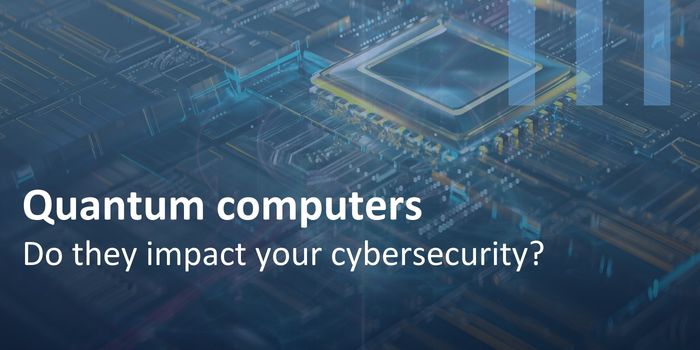What are quantum computers? In essence, they use qubits rather than classical bits, creating a powerful device that can solve unique problems and parse a multitude of information. The computers themselves work with principles such as entanglements, and ultimately linked qubits that share information instantly without a concern for distance. While these computers are still in the early stages, and require a special set of conditions to operate, it is crucial that we are aware not only of the potential that these devices have, but also how they will impact cybersecurity structures. Throughout their development, quantum computing has raised questions about how we secure and encrypt our data.
The risks of Quantum Computing
So, what really is the impact that quantum computing can have on cybersecurity? One of the largest risks is that these devices can use their technology to crack current encryption, allowing hackers to more efficiently wreak havoc on unsuspecting targets. This ability to more easily crack encryption gives threat actors a greater advantage when it comes to stealing data, disrupting transactions, and ultimately compromising infrastructure. This leaves systems vulnerable to a variety of different types of attacks impacting multitudes of businesses and institutions. Imagine those with even the strongest cybersecurity now being able to fall victim to attack based on the strength in quantum computing. Even data intercepted today can later be decrypted with the power of quantum computing.
The Benefits of Quantum Computing
While it is crucial to discuss the dangers of quantum computing, it is just as important to look at the opportunities it presents. The technology opens up the door to strengthened security and innovative measures to keep our data safe. This means that while threat actors would easily be able to crack current encryption, we can use quantum computers to potentially create unbreakable encryption that will strengthen measures to thwart criminal activity. In addition to bolstering security, the power that comes with quantum computing brings to light a whole new set of possibilities including faster data analysis which speeds up threat detection, leading to more prompt prevention. We can also look towards a new ability to secure communication and data transfer.
How can you take action?
With all of this information, what do we do? Quantum computing is not yet a fully accessible method for threat actors and businesses, but it is still important to be aware of advancements. Even if you do not imagine your company utilizing such technology, that does not stop cyber criminals from taking advantage of newfound openings in your cyber-armor. If you are considering adding any aspects of quantum computing to your repertoire, understanding the risks and opportunities it provides can help you better prepare.
As we continue to see technology change, we must also understand and accept that not everyone will have the same enthusiasm for quantum computing – there will be critics and concerns as the uses of this technology greatly outnumber cybersecurity. Staying informed is key in understanding quantum computing as a big-picture item. This being the case? What can you do to stay informed?
- Actively search out news regarding the topic.
- Search for pilot programs that utilize quantum computing
- Always verify your information and be wary of misinformation
Whether you choose to stay informed in one of the manners above, or have a different strategy, your awareness will help you begin to prepare for the imminent addition of quantum computers to our cybersecurity tool kit. We don’t know exactly when this technology will make its widespread debut, but now is the best time to consider the possibilities.
Where does this leave us?
There is no way for us to be fully prepared when it comes to quantum computing, at least until it is more widely available. Our team looks forward to continued monitoring and understanding of quantum computing; from inception to widespread use, quantum computers will change the way we look at cybersecurity. The greatest threat to your cybersecurity is not being prepared for change – you could have the most efficient cybersecurity measures now, but as technology changes, we must all be fluid in how we assess and respond to cyber threats.

